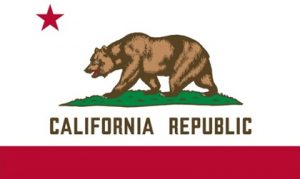California Governor Gavin Newsom announced Tuesday that he signed tribal-state gaming compacts with six of the states federally recognized Indian tribes, among them, the Picayune Rancheria of Chukchansi Indians. Signed August 10, 2021, after several years of negotiations, the agreement with the Tribe whose rancheria is located in Madera County, will enable the expansion of its Chukchansi Gold Resort & Casino in Coarsegold and protect employees and casino patrons, according to a source.
The 25-year compact (pdf) authorizes Class III gaming with up to 3,500 gaming devices at up to two gaming facilities on the Tribe’s land held in trust. However, if the tribe operates more than 3,000 gaming devices in a year, it will pay $500,000 to the Special Distribution Fund in addition to its pro rata share obligation. The compact will go into effect once it is ratified by the state legislature and approved by the U.S. Department of the Interior (DOI).
Arduous process:
Picayune Rancheria of Chukchansi Indians Chairwoman Claudia Gonzales explained… 
“Throughout the negotiations the Tribal Council worked tirelessly to protect our sovereignty, and this new compact will provide for the expansion of our gaming business.”
She added that the agreement reached after “years of tough negotiations” will ensure the Coarsegold casino remains the region’s “premier gaming resort.”
July MoU:
Preceding the signing of the compact, on July 30th a memorandum of understanding (MoU) was signed by the Tribe and Madera County that will reportedly increase law enforcement presence and fire protection on Chukchansi lands in central California including the Tribe’s Coarsegold casino and the surrounding community.
According to The Fresno Bee newspaper, under that agreement, the Tribe will fund the additional services and will be permitted to integrate marijuana into its economic development strategy.
Coarsegold property:
Located between Fresno and Yosemite National Park, the casino portion of Chuckchansi Gold Resort and Casino opened on June 25, 2003, which was followed by the resort portion opening on August 22 that year. Currently, the property’s 73,000 square-foot gaming floor offers 2,000 slot machines and 39 Vegas-style table games. Other property amenities include 402 guestrooms and suites situated over two hotel towers, 6 restaurants, a bakery and a coffee house and 3 bars/lounges, a full-service spa, more than 6,000 sq ft. of flexible meeting and event space, indoor/outdoor swimming pool with two hot tubs and a 24-hour fitness center.

Tribal-state compacts:
The five other California tribes with new 25-year gaming compacts signed by Governor Newsom (pictured) on August 10, 2021, are:
- Cahto Indian Tribe of the Laytonville Rancheria, owner-operator of Red Fox Casino in Laytonville. The Tribe’s compact authorizes Class III gaming with up to 1,200 gaming devices at up to three gambling facilities on the Tribe’s property.
- Sherwood Valley Rancheria of Pomo Indians, owner/operator of Sherwood Valley Casino in Willits (same authorizations as above)
- Table Mountain Rancheria, owner/operator of Table Mountain Casino in Friant. The Tribe’s compact authorizes Class III gaming with up to 3,000 gaming devices at up to three gambling facilities on the Tribe’s property.
- Ewiiaapaayp Band of Kumeyaay Indians in Alpine. Compact authorizes Class III gaming with up to 1,200 gaming devices at up two gambling facilities on the Tribe’s property.
- Resighini Rancheria in Klamath. Same authorizations as directly above.
Each of the six tribes is federally recognized and as such qualify to own a casino under the U.S. Indian Gaming Regulatory Act (IGRA) enacted in 1988. Under the Act, Class II gaming can be authorized on tribal land sans state approval.
The tribal gaming compacts with the state of California specify quarterly payments to the state based on a percentage of gambling revenues. The payments include those that go into a Revenue Sharing Trust Fund, which is distributed to both limited-gaming tribes and non-gaming tribes throughout the western U.S. state.
